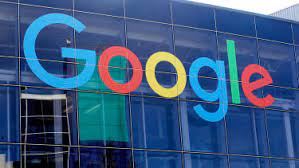
Upholding charges of not being able to comply with orders from the French antitrust regulator about how to negotiate with the news publishers of the country news publishers, a record fine of 500 million euro ($593 million) on Alphabet's Google was slapped by the regulator.
There is increased pressure internationally on online platforms such as Google and Facebook to part with a share of their revenues with news outlets whose content the platforms use.
The United States based search engine giant has been ordered to devise a set of proposals within the next two months about how the company will compensate news agencies and other publishers for using their original news content. An additional fine of 900,000 euros per day will be slapped on the company if it fails to do so.
While saying that it was very disappointed with the decision, Google said it would comply with the regulator’s order.
"Our objective remains the same: we want to turn the page with a definitive agreement. We will take the French Competition Authority's feedback into consideration and adapt our offers," the US tech giant said.
"We have acted in good faith throughout the entire process. The fine ignores our efforts to reach an agreement, and the reality of how news works on our platforms," added a Google spokesperson.
Allegations against Google of not holding talks in good faith with them for working out a solution for the remuneration of online news content, according to the directions of a recent European Union directive that has created the so-called "neighbouring rights", were levelled by news publishers APIG, SEPM and AFP.
The issue of whether temporary orders issued by the antitrust authority were breached by Google, which mandated that the tech giant participate in compensation negotiations within three months with any news publishers that ask for them, was at the core of the case itself.
"When the authority decrees an obligation for a company, it must comply scrupulously, both in the spirit and letter (of the decision). Here, this was unfortunately not the case," the antitrust body's chief, Isabelle de Silva, said in a statement. In its negotiations with the news publishers, Google had not acted in good faith, the regulator had concluded, she also said.
According to reports, even though it had previously signed a framework agreement with Google this year, the APIG is still one of the plaintiffs in the case. The APIG is a body that represents most of the major French print news publishers including Le Figaro and Le Monde. According to previous reports, the companies had put the framework deal on hold till the antitrust decision.
A number of other French media outlets have however criticised the framework agreement for compensation of the news outlets and publishers even though the framework is viewed to be one of the highest-profile deals under Google's "News Showcase" programme aimed at offering compensation for news snippets that are used in the company’s search results. The agreement was also the first of its kind for Google in Europe.
(Source:www.bloomberg.com)
There is increased pressure internationally on online platforms such as Google and Facebook to part with a share of their revenues with news outlets whose content the platforms use.
The United States based search engine giant has been ordered to devise a set of proposals within the next two months about how the company will compensate news agencies and other publishers for using their original news content. An additional fine of 900,000 euros per day will be slapped on the company if it fails to do so.
While saying that it was very disappointed with the decision, Google said it would comply with the regulator’s order.
"Our objective remains the same: we want to turn the page with a definitive agreement. We will take the French Competition Authority's feedback into consideration and adapt our offers," the US tech giant said.
"We have acted in good faith throughout the entire process. The fine ignores our efforts to reach an agreement, and the reality of how news works on our platforms," added a Google spokesperson.
Allegations against Google of not holding talks in good faith with them for working out a solution for the remuneration of online news content, according to the directions of a recent European Union directive that has created the so-called "neighbouring rights", were levelled by news publishers APIG, SEPM and AFP.
The issue of whether temporary orders issued by the antitrust authority were breached by Google, which mandated that the tech giant participate in compensation negotiations within three months with any news publishers that ask for them, was at the core of the case itself.
"When the authority decrees an obligation for a company, it must comply scrupulously, both in the spirit and letter (of the decision). Here, this was unfortunately not the case," the antitrust body's chief, Isabelle de Silva, said in a statement. In its negotiations with the news publishers, Google had not acted in good faith, the regulator had concluded, she also said.
According to reports, even though it had previously signed a framework agreement with Google this year, the APIG is still one of the plaintiffs in the case. The APIG is a body that represents most of the major French print news publishers including Le Figaro and Le Monde. According to previous reports, the companies had put the framework deal on hold till the antitrust decision.
A number of other French media outlets have however criticised the framework agreement for compensation of the news outlets and publishers even though the framework is viewed to be one of the highest-profile deals under Google's "News Showcase" programme aimed at offering compensation for news snippets that are used in the company’s search results. The agreement was also the first of its kind for Google in Europe.
(Source:www.bloomberg.com)














